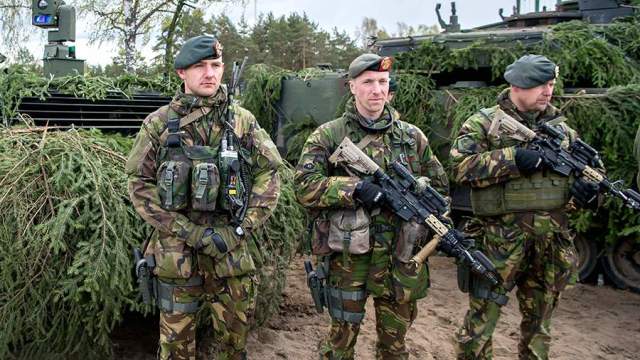The deployment of the British military in Germany will not help to reduce tensions between NATO and Russia. This was announced on Sunday, November 28, by the Russian Ambassador in London Andrey Kelin.
"Unfortunately, this decision is in line with the policy of [the West] in recent years. NATO is increasing its military presence along the Russian borders. Maneuvers are being conducted in the Black and Baltic Seas, strategic aircraft carrying nuclear weapons flew 20 km from Russian territorial waters, this is dangerous," Kelin said on Times Radio.
Kelin also mentioned an incident involving the British ship Defender, which in June tried to enter the territorial waters of the Russian Federation. The Black Sea Navy Fleet, together with the FSB border service, stopped the violation of the Russian state border.
Earlier in the day, Hungarian Foreign Minister Peter Szijjarto said that no one in Europe wants a conflict between Russia and NATO, the West will do everything possible to avoid a clash of the parties.
At the same time, Szijjarto noted that Hungary, as a NATO member, must fulfill a number of obligations, while Budapest intends to do everything possible to avoid and prevent a conflict between Russia and NATO.
On November 21, Deputy Secretary of the Security Council of the Russian Federation Alexander Grebenkin said that a significant increase in NATO activity is fraught with threats of armed conflicts and incidents on the Russian border.
On November 19, Russian Foreign Minister Sergei Lavrov said that Russia would not turn a blind eye to the grossest provocations from NATO and the European Union. He noted that Western democracies cannot and do not have the right to declare their superiority to everyone.
On October 21, German Defense Minister Annegret Kramp-Karrenbauer called on the North Atlantic Alliance to demonstrate to Russia its readiness to use weapons if necessary. According to her, Russia allegedly constantly violates the airspace of the Baltic states in the Black Sea.

